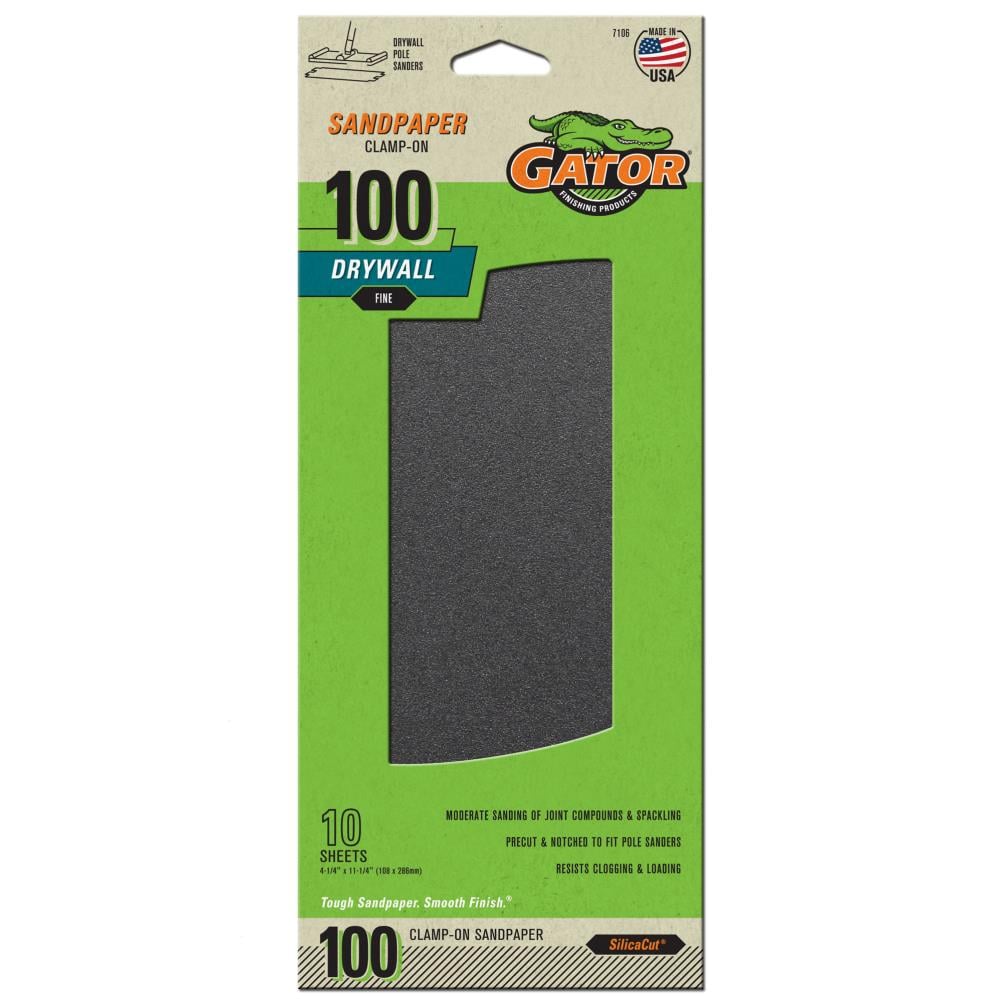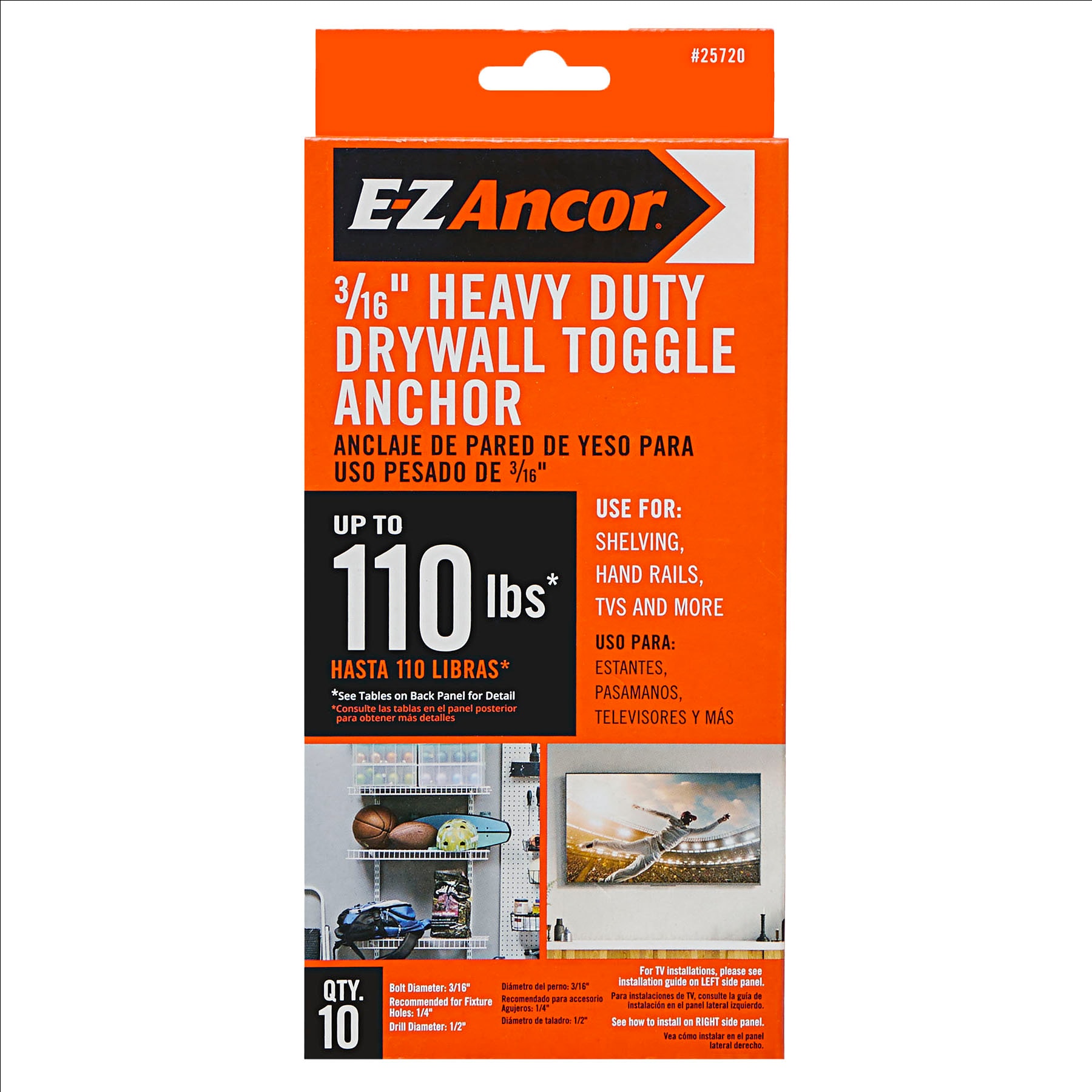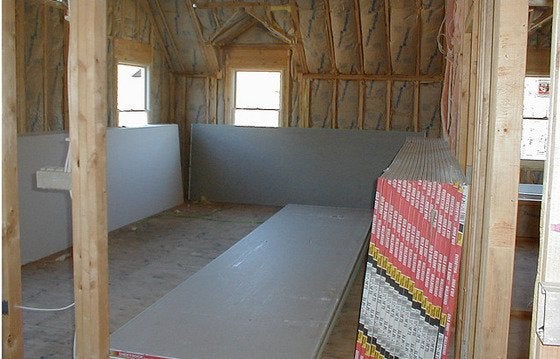
Make sure you do it correctly when you sanddrywall. The right tools can make all of the difference in your sanding project. You have the option of sanding drywall with a sanding block or an electric sander. Be careful to not make a big mess. Sanding can make dust, so be sure to keep your work area dry and clean.
To get the best results, you need to sand in a circular motion. This will allow you to achieve a smooth surface. You should also use the correct grit of sandpaper. The wrong grit can cause irreparable damage to the drywall. A coarse sandpaper may speed up the process, but it can also cause smudges on your walls. Fine grit will give you a smoother finish.
It can be difficult to find the right sandpaper. A good rule of thumb is to choose a paper that is less than 60 grit. This will allow for you to remove small scratches on the wall. However, it's unlikely that this will completely remove the mud.

Sanding sponges are another great choice, especially for wetsanding. The sponges can be made in a wide range of grits unlike sandpaper. There is a sponge to suit every sanding task, from medium to coarse. Some experts recommend using a push-pull motion to apply pressure along the nail pattern of your wall.
Drywall sanding can cause a lot of mess so make sure you have protective gear and clothing. A mask that filters particulate matter is a must. You can prevent dust from building up by using a HEPA filter on your sander.
You can also sand drywall by hand with a trowel and a thin coat of joint compound. However, this method is best used for small areas. A pole sander can be used to sand larger areas. A pole sander allows you to reach areas otherwise impossible with a normal sander.
Your project's success will depend on the sanding tools you use. Wear goggles and dust masks if you are using a hand sander. You should not sand large areas at once, as excessive pressure can cause damage to the walls.

You should rinse your sponge after sanding the drywall. To get consistent pressure in the entire area when you use a sanding device, such as an electric or hand sander, the screen and block must be used.
Finally, you'll need to make sure you use the right sandpaper. There are many types and brands of sandpaper. Make sure to carefully read the labels before you buy any. A fine-grit is best for smoother surfaces while a coarse-grit is better for more rough surfaces.
FAQ
Do I need permits to renovate my house?
Yes. Before you start any home improvements project, permits are necessary. A building permit and plumbing permit are required in most cases. A zoning permit is also required depending on the type and extent of work you are performing.
How can I find a reliable contractor?
Ask friends and family for recommendations when selecting a contractor. You can also look online for reviews. You should ensure that the contractor you select has experience in the field of construction you are interested. Check out references and ask for them to provide you with some.
Is it better to hire a general contractor or a subcontractor?
A general contractor will usually cost more than a subcontractor. General contractors often have many employees and charge clients high labor costs. Subcontractors, on the contrary, hire one employee and charge less per hour.
Statistics
- ‘The potential added value of a loft conversion, which could create an extra bedroom and ensuite, could be as much as 20 per cent and 15 per cent for a garage conversion.' (realhomes.com)
- On jumbo loans of more than $636,150, you'll be able to borrow up to 80% of the home's completed value. (kiplinger.com)
- A final payment of, say, 5% to 10% will be due when the space is livable and usable (your contract probably will say "substantial completion"). (kiplinger.com)
- According to the National Association of the Remodeling Industry's 2019 remodeling impact report , realtors estimate that homeowners can recover 59% of the cost of a complete kitchen renovation if they sell their home. (bhg.com)
- Rather, allot 10% to 15% for a contingency fund to pay for unexpected construction issues. (kiplinger.com)
External Links
How To
Five Things You Need to Know Before You Begin Your Home Renovation
-
Do you really want to do this? If you are planning to do major home improvements like renovating your bathroom or building new houses, you will likely need help. However, if you feel unsure about your ability to complete such a big task by yourself, you might consider hiring someone to help you. It could take up a lot of your time and money, and you won't get any real benefits from it. Why not get someone who is experienced to assist you? They'll save you a lot of hassle and stress, and you'll still end up with a beautiful space to live in.
-
How much should you spend? This is a common question, but it can make renovations more expensive. This is because most of the cost will be recouped at the end. You should stick to your budget, even if it's a tight one. If you don't, you might end up spending a lot of money and not receiving anything.
-
Should I use DIY or hire professionals? - While there is no right or wrong answer, we recommend that you hire professional tradespeople if possible. They can give you sound advice about how to proceed with your project. They will install the plumbing correctly, take care of safety, and offer a guarantee after they have finished their work. DIY projects can be frustrating because they require a lot more trial and error. This means that you will have to learn many lessons from the experience. You'll also have to deal with any problems that may arise throughout the process.
-
How much can I afford it? - Don’t underestimate the cost associated with a home renovation. Even if your budget is tight, you may need to borrow money to cover costs. If you are planning on selling your existing property soon after finishing the renovations, it is important to include the cost of selling it in your calculations.
-
Where should I begin? There is no right or wrong place to begin when it comes to starting. However, we would suggest that you choose somewhere that you enjoy working on. That way, you'll be motivated to keep going, and you'll be less likely to procrastinate. Also, try to avoid places that require a lot of maintenance. You should avoid redecorating your living room if it is always covered in dirt and dust.